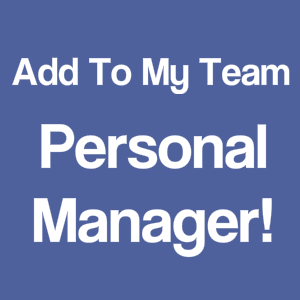At some point in time, you may get an opportunity to perform a monologue for a talent agent, manager or casting director, or who knows what other situation may arise to do one. Because of that, it’s good to always have a couple of them ready. Plus, it’s good for your acting chops. So now is the time to prepare.
In this article I’m going to give you some guidelines about preparing a monologue and on what type you should choose.
Choose relatable material.
It’s better to choose relatable material that the audience can understand and identify with versus choosing obscure topics and weird situations that take a lot of explanation to set up. Even worse, doing a monologue you wrote.
Unfortunately most actors are not great writers, so it’s very risky to do one that you wrote.
You can’t go wrong with proven material by writers who use “beats” and “arcs” that create compelling stories.
Avoid the most famous monologues as they are usually worn-out.
Stay away from monologue books of the Top 50 monologues for men or women. Thousands of actors are doing the monolouges in those books. It’s very likely that the person you’re meeting with has already seen the material from these books performed on several occasions if they like to see monologues.
If you are going to show your acting chops and stand out, it’s better to choose something that is not too obscure and not the most famous monologues, such as Hamlet’s “To Be or Not To Be” or the best of Tennessee Williams monologues. These are great to work on for your acting training, but be cautious about using them as an audition piece.
Choose a light-hearted, entertaining monologue that shows you could be cast for television roles.
Make sure the monologue is light fare – don’t do Shakespeare and don’t do a super dramatic breakdown scene – wrong time and place. If you are doing monologues, it’s because most likely you are still in the proving yourself stage of your career, which means you’re not going to be cast in the heavy-duty breakdown scenes.
In fact, here’s the biggest myth I hear in this regard:
Many actors think that being able to cry on cue is such a gift that they put it in their special skills and interests.
Learning the truth about this myth was one of the best lessons of my acting career. I did a film and a play where I cried on cue — and I cried really well — and in the play, I did it night after night. I thought I was so great. But ultimately I realized that conjuring up tears and crying is not what matters — it’s feeling deep inside like you authentically want to cry because you are so in the situation — but then HOLDING back the tears. That’s what moves people. Trying NOT to cry moves people, not trying TO cry.
That’s veering off-topic a little bit, but the point is, do not do a melodramatic monologue and do not choose one where you cry. Choose a monologue that is more nuanced.
Choose a monologue that’s appropriate for the audience.
If you specialize in performing light fare or sitcoms, then your monologue should be upbeat, light-hearted and comedic. If you are meeting with a casting director from a particular television series then prepare a monologue in the tone of that television series — but NOT one from the series.
If possible, ask the person you’re meeting with if there is a particular character type, tonal quality or genre she would like to see you perform. If you know what they want, then give it to them. If you can’t find out, then just follow the guidelines here and you’ll be fine.
Select a monologue that’s 2 to 3 minutes long.
Whomever you will be performing your monologue for is going to be very busy. They don’t need to see a 5-minute monologue. A couple of minutes will give them a taste of your style, so keep it short.
Selecting a short monologue does three things: It respects their time; it’s easier for you to prepare for; and if you are awesome, it will leave them wanting to see more of you!
Be super-well prepared.
Prepare like you are doing a real performance – because you are. Do everything you would do if you were cast in the role. Create an entire motivated scene with a beginning, middle, and end or whatever your process is that you learned or developed in acting class.
You only get one chance to make your impression on this industry contact, so do whatever you can to deliver your very best performance every time.
If you do your full preparation and then somehow blow it — even that’s okay, because it happens to everyone at one time or other. The most important thing is to do what you have control over and that is to be fully… fully FULLY prepared!
The truth is that agents and casting directors are always hoping that the next actor they meet is the one they’ve been waiting for! So Be IT!
And finally….
- Take risks.
- Bring your confidence.
- And make your character interesting… unpredictable… and in the moment.
If you do these things, you will be well on your wait to a fantastic audition!
Want More Actor Marketing Caffeine?
By submitting this form you are agreeing to our Terms and Conditions.

